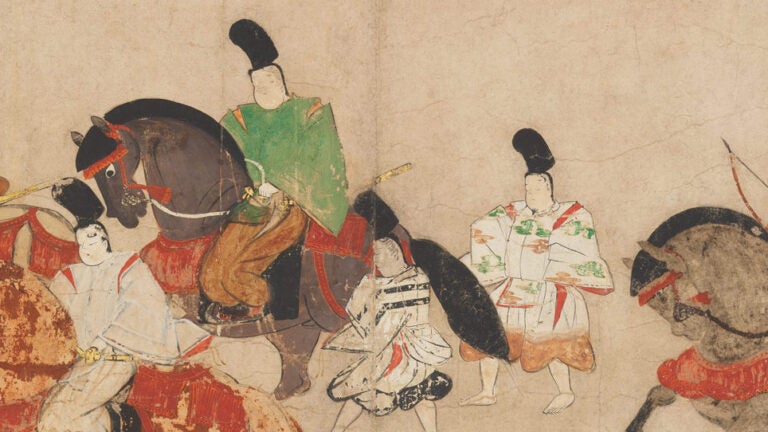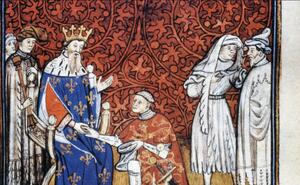Jay Rubenstein, Director
Message from the Director
This year CPW begins its sixth year of programming and public outreach activity, aimed at bringing to life the premodern world here in Los Angeles, one of the most modern of world cities. Over the past five years we have discussed how conspiracy and conspiracy theories shape and sometimes undermine civilizations. We have examined the history of the Silk Roads and their ongoing legacy in the modern world. We have collaborated with the J. Paul Getty Museum with a public symposium on the theme of Blood in the Middle Ages. And we have hosted numerous lectures, seminars, and colloquia on a variety of premodern topics connected to geographies across the globe. Please join our mailing list and check this page often to see what events we have planned for the future. Also take some time to explore these pages and learn more about the outstanding, award-winning scholars who comprise our community.
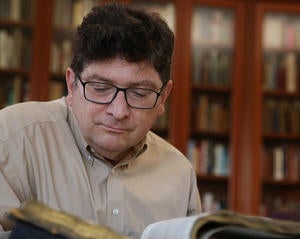
About the Center for the Premodern World!
The Center for the Premodern World at USC creates space and offers resources for the study of cultures and civilizations, beginning with the earliest historical eras up to the end of the Middle Ages and the beginning of the modern world. The Center aims to have a truly global reach in terms of areas of research and as such has the potential to involve over forty faculty on campus in its activities. Already it co-sponsors an interdisciplinary research seminar on the Premodern Mediterranean. The director hopes to expand the number of such seminars and also to bring to campus a series of internationally recognized scholars to offer public lectures and to work closely with faculty and graduate students on their own academic projects. The Center also anticipates inaugurating major initiatives in the digital humanities, including collaboration with Doheney Library’s Special Collections Department to increase access to the university’s collections of medieval manuscripts and early printed books. Finally, the Center will seek ways to promote scholarship which is serious and which also has the potential engage a wide, cultural audience. Few symbols of the ancient world are as powerful, haunting, and evocative as the city of Troy. It is both fitting and ironic that USC, a new Troy in the relentlessly modern city of Los Angeles, would create a space for the study of premodern dreams and their enduring legacies.
IN THE NEWS
CPW’s Conspiracy Project Continues
Conspiracies both real and imagined—truthfully, mainly imagined—continue to shape the culture and politics of our world, certainly to an unhealthy degree, but is it unprecedented? For the past three years, the Center for the Premodern World has investigated that question. In the summer of 2023, through the generosity of the Albert and Elaine Borchard Foundation, CPW arranged a symposium in a château in Brittany to examine the roles played by conspiracies and conspiracy theories in the medieval world. Our goals were not only to understand the historical impact of conspiratorial thought in the Middle Ages but also to ask what conditions enable such a world view to take hold.
On June 25, 2023, an international group of twelve scholars gathered at the Château de la Bretesche for a three-day symposium to discuss this question: the spread of conspiratorial thought in the Middle Ages. We took as our starting point the eleventh century, when an instinct to persecute heretics and Jews emerged. Heretics were rumored to be actively trying to undermine Christian belief, and Jews in France were accused of conspiring with Muslims in Egypt to try to destroy the Church of the Holy Sepulcher in Jerusalem. This tendency toward conspiratorial thought coincided with the advent of what R. I. Moore has famously defined as a “persecuting society.” Indeed, Moore himself was present for the symposium and noted the conceptual similarities between “conspiracy” and “heresy.” In the minds of medieval Inquisitors, the heresy they called “Catharism” seemed to be a vast, international conspiracy in which anti-Christian forces, goaded by missionaries (or propagandists?) from eastern Europe, spread doctrines that had the potential to destabilize Western society. Or were these accused Cathars heretics the creation of the Inquisitors themselves. Was the panic inspired by their secret meetings and subversive doctrines a sort of conspiracy propagated by Inquisitors?
Whatever the case, a belief in widespread conspiracies, fomented by heretics or Jews or Muslims or demons or lizard-men, took hold in Europe in the thirteenth century and reached something of an apogee during the rule of Philip IV “the Fair” of France (r. 1285-1314). It was Philip who famously turned the tools of Inquisition against the Knights Templar, an order founded to defend Latin Christian pilgrims and settlers in the Middle East during the crusades but who were accused by Philip of being in league with Muslims and of being devil worshippers. Philip’s reign may have represented the high point of conspiratorial thought, but it was by no means the end of it. Anti-Judaic conspiracy theories—blood libel and well poisonings, among others)—became habits of thought even as the world transitioned from the Middle Ages into Renaissance.
These were some of the topics and questions considered at the “Conspiracy and Conspiracy Theories” symposium. CPW hopes to continue to investigate this theme, especially since it remains stubbornly relevant. Why do we tell ourselves the stories that we do, and why do we continue to believe them and despite all evidence to take them in newer, stranger directions? The medieval world did not have a monopoly on irrational, supernatural terrors. Truth be told, no one in the Middle Ages believed that lizard men were conspiring against Western Civilization. That’s a twenty-first century conspiracy.
Participants at the symposium were: Christine Caldwell Ames (University of South Carolina), Tzafrir Barzilay (Bar-Ilan University), Elizabeth A. R. Brown (CUNY-Brooklyn), Dallas Denery (Bowdoin College), Sara Lipton (Stony Brook University), Helen Nicholson (Cardiff University), R. I. Moore (Newcastle University), Mark Pegg (Washington University in St. Louis), Gian Luca Potestà (Università Cattolica del S. Cuore, Milan), Jay Rubenstein (University of Southern California), Sophia Schmitt (University of Munich), and Julien Théry (l’Université Lyon II Louis Lumière).
The Albert and Elaine Borchard Foundation, which funded this event, has as its mission to promote research, education, social justice, and the arts and to improve the human condition. CPW is enormously grateful to the Borchard Foundation not only for providing the resources essential to making this event happen, but also for opening up such a beautiful and historically evocative space for our discussions.
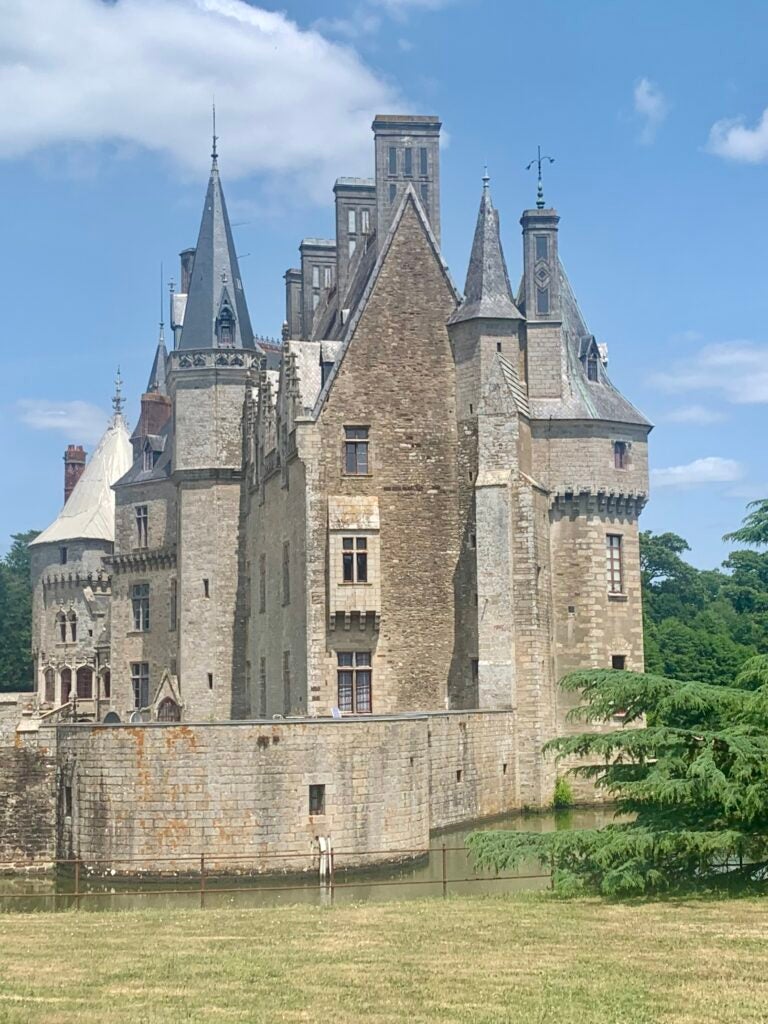
The BBC recently took notice of the event “Conspiracy Theories Then and Now,” co-sponsored by the Center for the Premodern World and the Center for the Political Future, and made a short film partly inspired by it, now available on the web and featuring some familiar faces.
CPW Affiliates Bringing Medieval Manuscript to Life with NEH Grant
Lynn Dodd (USC Religion/Archaeology) and Sabina Zonno (USC Art History/The Huntington)
The Global Access Virtual Library Project — offering page-turning exploration of virtual ancient manuscripts in virtual spaces — has been awarded funding by the NEH in the form of a Level 2 Digital Humanities Advancement Grant.
Timeline: by this time next year, we hope that anyone interested will be participating in the beta testing of the more advanced interactive features that will have been added to our already-working prototype version.
Co-PI Sabina Zonno said: “In our VR experience, wide audiences gain virtual access to a normally-restricted gendered, religious artifact, experience, and space. We give everyone access to a Latin-language manuscript made in early modern Belgium, with its full-page color illuminations depicting scenes from the Bible. Translations and transcriptions in multiple languages and virtual handling, support public audiences in becoming keenly aware of the risk of damage related to the use of ancient manuscripts. We enable any users to experience a 15th-century manuscript in the original context in which it was originally used and we draw public attention to the value of manuscripts as meaningful records of our cultural heritage.”
Lynn Dodd (Religion/Archaeology) said: “Our intent in creating proper handling feedback and in making a realistic parchment material simulation is to allow people to explore these manuscripts with renewed attention and excitement. The real-time, page-turning actions are completely different from an experience of seeing a rare manuscript in a glass case. Our project enables interactive features to be applied to manuscripts in collections worldwide, contributing both to wide access and preservation.”
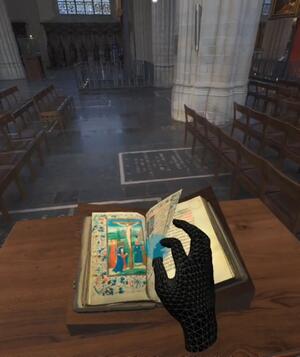
Marglin wins NEH
Congratulations to Jessica Marglin, who recently received an NEH Fellowship for her project, “The Extraterritorial Mediterranean: Jurisdiction and Sovereignty in the Nineteenth Century.” She will be taking up the fellowship during the academic year 2023-2024.
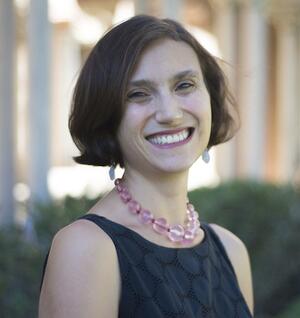
Bovet awarded a Loeb Classical Library Foundation Award
Christelle Fischer-Bovet (Classics, History and Middle East Studies) was awarded a Loeb Classical Library Foundation Award (Harvard University) for her book project “The Ptolemaic Empire (323–30 BC)” for the academic year 2022–2023.
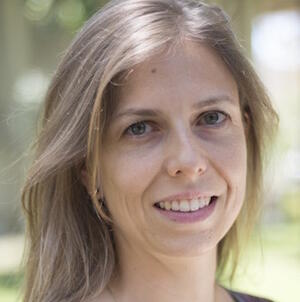
Bitel wins NEH Research Fellowship
Lisa Marie Bitel, Dean’s Professor of Religion and Professor of Religion and History and CPW Advisor Board Member, is spending the 2021-2022 academic year on leave with the support of a research fellowship from the National Endowmen for the Humanities.
Her project is titled “Unseen: The Religious Supernatural in the Earliest Middle Ages” and will lead to a book publication on religious conversion to Christianity in early medieval Britain and Ireland between 400 and 800 C.E. “Most scholars treat the Christianization of these islands as a story of sudden epiphanies, drawn from Christian-authored medieval histories,” Bitel explains. She proposes instead to explain changes in the religious habits and landscapes of ordinary people in relation to the unseen forces that surrounded them. The source base includes neglected texts across written genres in both Latin and the vernaculars, as well as recently discovered archaeological evidence that contradicts traditional histories. This eveidence will demonstrate how people in the region gradually shifted their interactions with the supernatural. “They chose what to see among possible religious realities, then negotiated with family members, allies, and authorities to find efficacious ways of dealing with the supernatural. Eventually, they learned to look like Christians.”
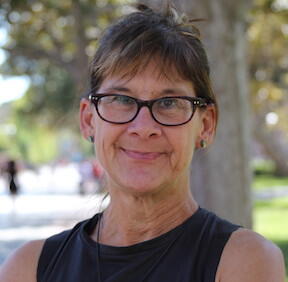
Lori Meeks—2020 fellowship awardee for The Robert H. N. Ho Family Foundation Grants for Critical Editions and Scholarly Translations.
USC Departments of Religion and East Asian Languages and Cultures Associate Professor Lori Meeks has been announced as a 2020 fellowship awardee for The Robert H. N. Ho Family Foundation Grants for Critical Editions and Scholarly Translations.
The Robert H. N. Ho Family Foundation Program in Buddhist Studies, housed within the American Council of Learned Societies, offers an articulated set of fellowship and grant competitions that will expand the understanding and interpretation of Buddhist thought in scholarship and society, strengthen international networks of Buddhist studies, and increase the visibility of innovative currents in those studies.
Meeks’ translation project with Paul Groner, Professor Emeritus of the Department of Religious Studies at the University of Virginia, focuses on Kōshō Bosatsu Eison gokyōkai chōmonshū, a collection of 78 short Buddhist sermons collected by a close disciple of the thirteenth-century Buddhist priest Eison (1201-1290).
Meeks describes Eison as “a fascinating figure who gained a very wide public following in medieval Japan. These sermons provide an intimate glimpse into his ministry, as Eison discusses everything from his commitment to establishing Chinese-style ordination methods and monastic rituals in Japan to deathbed practices, the use of oracles and spirit mediums, and the importance of overcoming attachments in daily life.” The book-length translation will be the first time the text has been translated into English (or into any Western languages, as far as is know.) This endeavor will make available the teachings of perhaps the most prominent Buddhist figure of the thirteenth-century. Meeks explains that “the sermons help us better understand how people interpreted and practiced Buddhism in medieval Japan and its place in the Buddhist world of East Asia.” USC Center for the Premodern World, of which Meeks is an advisory board member, congratulates her on this award and contribution to premodern Japanese Buddhism.
Professor Jay Rubenstein, director of the USC Center for the Premodern World, wrote, “Professor Meeks has done great work as a member of CPW’s advisory board during its first year. A brilliant and deserving colleague — I couldn’t be more grateful to be able to work with her at USC!”
Congratulations to Professor Lori Meeks and Professor Paul Groner!
Lori Meeks is an associate professor of religion and East Asian Languages and Cultures. Her current research is centered on the social and cultural history of Buddhism in Japanese history. Much of her work has focused on clarifying the roles of women as consumers and practitioners of Buddhism in the Heian and Kamakura periods (roughly ninth through the early fourteenth centuries).
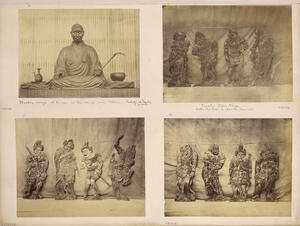
Maya Maskarinec—The Hagiography Society 2019 Book Prize Winner
The Hagiography Society winner of the 2019 Book Prize has been awarded to Maya Maskarinec (University of Southern California; Department of History) for her monograph City of Saints: Rebuilding Rome in the Early Middle Ages (University of Pennsylvania Press, 2018). The scholars who served on the judging committee this year included E. Ann Matter, Professor of Religious Studies Emerita at the University of Pennsylvania; Carolyn Muessig, Professor of Medieval Religion at the University of Bristol; and Nancy Warren, Professor of English at Texas A&M University.
The Hagiography Society Book Prize will be formally presented to Prof. Maskarinec on Friday, May 8, 2020 at the Hagiography Society’s luncheon business meeting at the 55th International Congress on Medieval Studies, Western Michigan University.
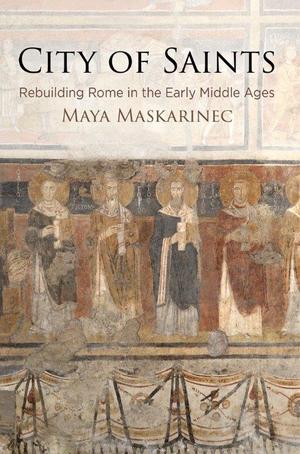
Bettine Birge—American Historical Association 2019 Prize Winner
The American Historical Association announced the winners of its 2019 prizes, to be awarded at the 134th annual meeting in New York City on January 3–6, 2020. The AHA offers annual prizes honoring exceptional books, distinguished teaching and mentoring in the classroom, public history, and other historical projects. Since 1896, the Association has conferred over a thousand awards. This year’s finalists were selected from a field of over 1,400 entries by nearly 150 dedicated prize committee members. The names, publications, and projects of those who received these awards are a catalog of the best work produced in the historical discipline.
The J. Franklin Jameson Award for the outstanding achievement in the editing of historical primary sources was awarded to Bettine Birge (Univ. of Southern California) for Marriage and the Law in the Age of Khubilai Khan: Cases from the Yuan dianzhang (Harvard Univ. Press, 2017)
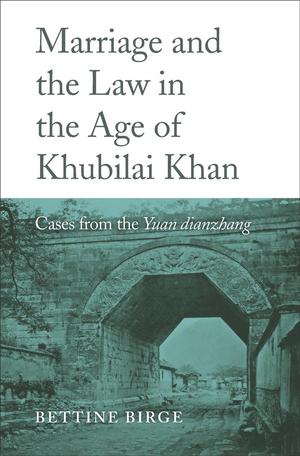
Contact Us
Location
University of Southern California
3501 Trousdale Pkwy
Mark Taper Hall (THH) 309
Los Angeles, CA 90089
